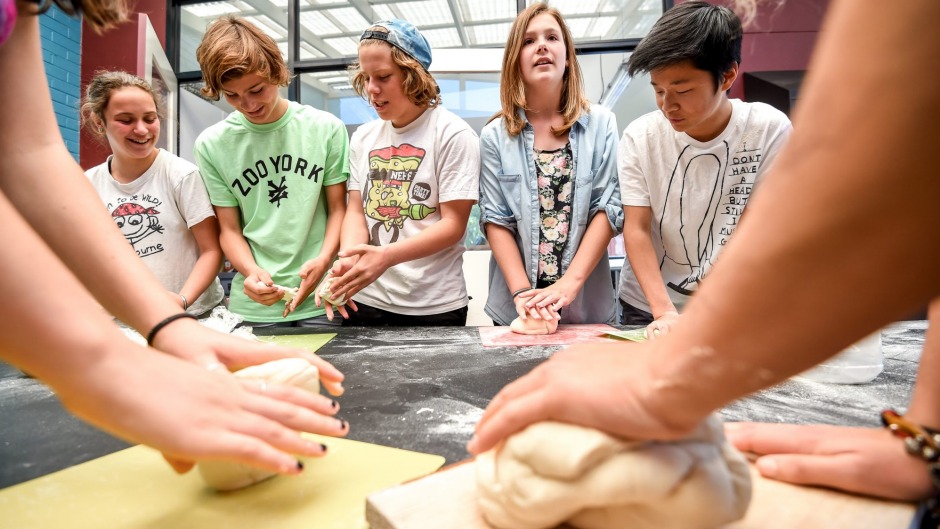A food fight worth having: why cooking should be taught in primary schools

Most of us over the age of 35 remember learning to cook at school – so when did this stop being considered an important life skill, like reading or driving? The need for kids to learn about cooking and nutrition has never been more vital given that diet-related disease is our biggest killer and our obesity trends are world-renowned.
We’re obsessed with food but we’re increasingly becoming a culture that doesn’t cook. In contrast to Australia, countries where cooking and sharing food is an essential part of the culture, such as Italy and France, have obesity levels below 20 per cent.
We’re raising our children to be ignorant about food and nutrition and this is having seriously damaging effects on their health and wellbeing. Research commissioned by Woolworths showed that 92 per cent of kids don’t know that bananas grow on trees and only half recognise a leek. It’s hardly surprising that data from the Australian Bureau of Statistics shows that fewer than 4 per cent of adults and 1 per cent of children consume the minimum recommended serves of vegetables and legumes.
Food literacy should be a human right. Without it we are nutritionally poorer and unable to make good choices.
The lifelong benefits of learning how to cook should not be underestimated. Cooking enables independence, can lead to a potential career path, is a cheaper alternative to takeaway or eating out and, most importantly, it has a positive impact on our health and weight.
Deakin Population Health researchers, in collaboration with The University of Melbourne, studied the impact that Jamie’s Ministry of Food 10-week cooking skills program had on the cooking and eating habits of Australian participants. They found the program resulted in an increase in home-cooked meals and vegetable consumption and that participants ate less takeaway food. These results were sustained six months after participating in the program – and that was after a single 10-week course. Imagine the potential impact after years of compulsory cooking classes at school.
We can’t rely on the assumption that children will learn how to cook at home. That’s clearly not working, as the statistics testify. Some parents lack the skills or simply don’t like to cook, but this shouldn’t mean our kids are denied this essential life skill. By the time students are (maybe) given the choice to do cooking classes in high school, it’s too late.
State governments need to be proactive in changing the status quo, either by altering the curriculum or providing schools with funding to run educational programs. And if politicians need any more convincing, they should refer to the increasing costs of government healthcare spending as a result of the rising rates of obesity, diet-related disease and diabetes.
Equipping people to be food literate and making obesity rates go down – that’s a food fight worth having.
Andrew Muir, Children's nutrition, Curriculum, Jamie Oliver, Ministry of Food Australia, The Age, The Good Foundation





